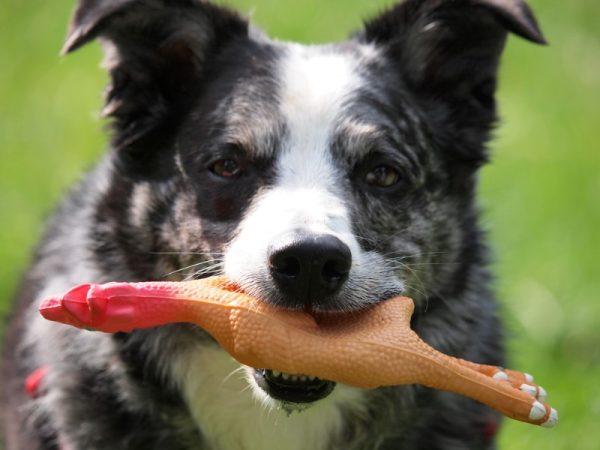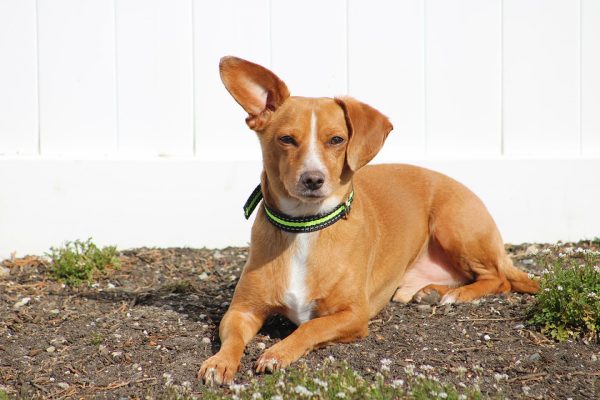In this article
View 2 More +Maltese dogs are loving, sweet pets best known for their silky, long coats. Standard Maltese have luxurious white fur, but some have tan and dark brown mixed in. The American Kennel Club (AKC) recognized the breed in 1888; in 2021, these dogs were the 39th most popular canines in the United States.
Maltese have a reputation for being enthusiastic barkers, but that is normal for energetic toy breeds. If triggered by something exciting or stressful, Maltese will bark excessively, and it’s often challenging to stop.

What Triggers Maltese Dogs to Bark?
Maltese tend to bark the most when anxious or excited. They will also bark and whine if they want something like a toy or even a walk, which can also indicate boredom in some pets. New people and unexpected noises are other common triggers. And because these dogs become so attached to their humans, Maltese often don’t do well when left alone since they’re prone to developing separation anxiety.

What Is Separation Anxiety?
Separation anxiety occurs when a dog becomes stressed as a result of being left alone1. It often happens in dogs who are firmly attached to their owners. Common signs of the condition include excessive barking, going to the bathroom in the house, destructive behavior, and attempts to prevent the departure of the person to whom the dog is attached.
Pets with only mild cases of separation anxiety often respond well to food puzzles that keep them busy when you’re away. It gives them something positive to associate with your departure. You can also take your Maltese for a quick walk before you leave, as the exercise will tire it out, so it will have less nervous energy and plenty of feel-good endorphins on board.
Dogs with severe separation anxiety often benefit from working with a canine behavioral specialist, and veterinarians can prescribe medication to relax the dogs. You can have your veterinarian examine your Maltese if you suspect your pet is suffering from separation anxiety, as some medical conditions can cause similar signs. Write down the types of behavior your dog is exhibiting and when these events happen so you can provide your veterinarian with accurate information.

Ways You Can Minimize Barking
Barking is a natural canine behavior, and it is part of how dogs communicate with us and each other. But there are ways to guide your dog towards more controlled barking that stops after an appropriate interval. Read on for a few tips on how to get dogs to bark less.
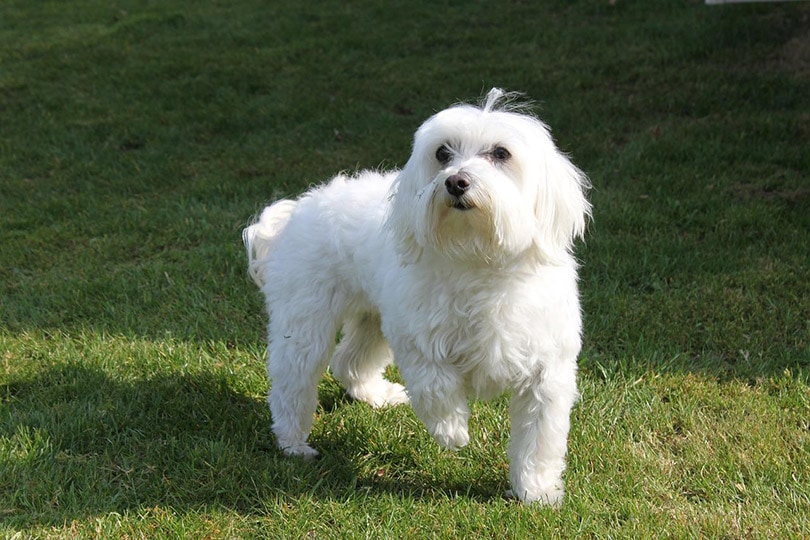
Training
Barking and training are all about communication. Things often go wrong in human-canine interactions because both parties speak different languages. Training provides you and your dog with mutually negotiated means of communication that facilitate good canine behavior.
Maltese dogs can often be trained to stop barking in response to a command like “Quiet.” You can also teach your dog to bark on command and then move on to training them to stop. Consider using hand signals to communicate with your dog, as they are often easier for pets to understand.
While Maltese dogs are generally easy to train, many owners find that starting early makes the process easier and delivers the best results. Agility training is often a great choice as it provides exercise and mental engagement. And because these dogs love to please their owners, training often strengthens the human-canine bond.
Limit Time Alone
Dogs shouldn’t be left alone for longer than 4 hours or so at a time, especially pets like the Maltese.2 Doggy daycare can be an excellent solution, as it offers companionship and opportunities for socialization. But remember that some Maltese don’t get along well with dogs they don’t know.
Consider hiring a dog walker to give your buddy a bit of attention during the day while you’re away if it has a tendency to nip at other dogs.
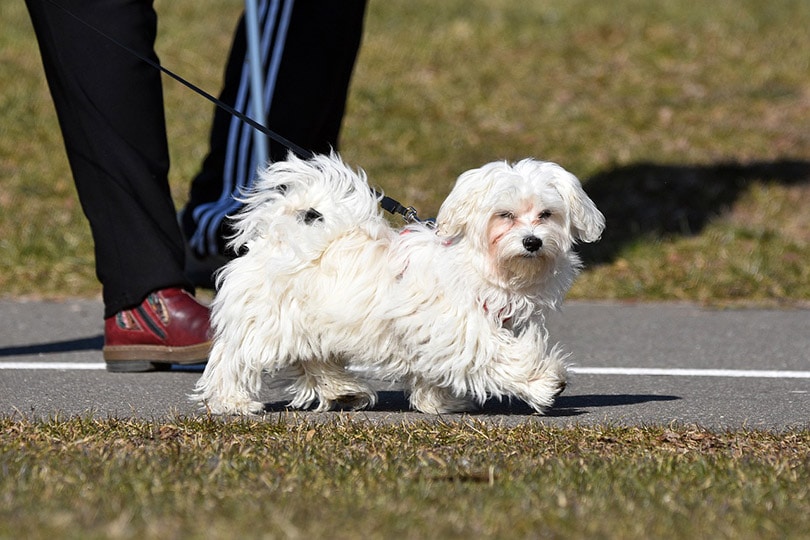
Celebrate the Positive
Dogs generally respond best to positive reinforcement. When you observe your dog doing the things you want to see, offer immediate praise and rewards. Be prepared with treats in situations you know are likely to result in too much barking, so you can react quickly in the seconds before your dog gets going.
Ignore Inappropriate Barking
Punishment and criticism often make canine problem behaviors worse. When your dog’s barking becomes excessive and inappropriate, like when you first come home, ignore the noise and do not give a treat. You can shower your dog with love and praise the minute the barking stops. Over time, your dog will learn that staying silent results in treats.
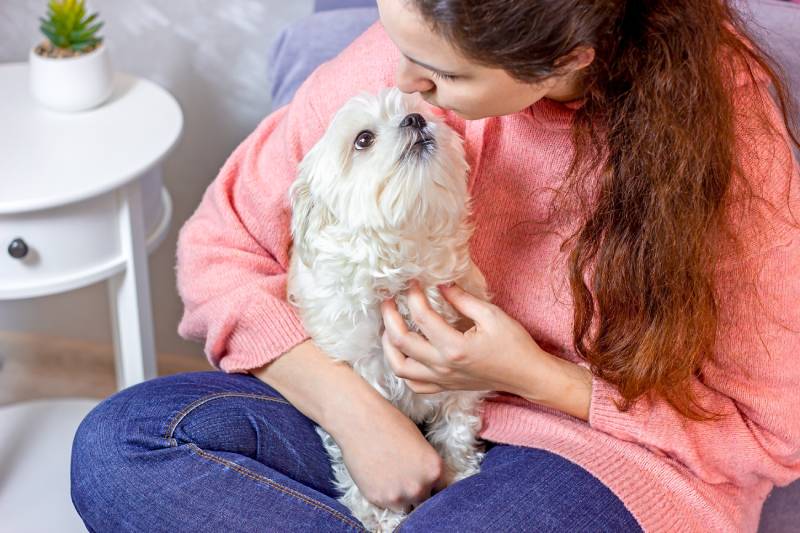
Remove Stimuli
Try to determine what prompts your dog to start vocalizing and then take steps to minimize your pet’s exposure to things that get the barking train rolling. If your dog gets going every time someone walks by the front of your home, consider closing the shades to limit your pet’s exposure to the trigger.
Get Ahead of the Game
Dogs can’t do two things at the same time! They can’t run about and bark when the doorbell rings if they’re resting comfortably on their bed, for instance. Teach your pet to do something specific in situations you know are likely to result in lots of barking and excitement like the doorbell ringing. Consider training your pet to do something fun, like going to a comfortable bed.
If you are working on appropriate responses to the doorbell, put the bed where your dog can see the door. Start by simply getting your pet to go to their bed. Reward your buddy with a treat when they do so at your request. When your dog has mastered going to their bed, move on to training them to stay put when the door opens or the doorbell rings by giving them massive treats and love when they head to their bed and stay calm.

Conclusion
Maltese dogs are loving, loyal, excitable dogs that tend to be barkers. Once the barking gets started, it can be difficult to convince the dogs to settle down. Problem barking in dogs is often a stress response. It’s also related to boredom, annoyance, and anxiety in many situations.
Since Maltese often become attached to their owners, the breed is vulnerable to separation anxiety, which can result in excessive barking and destructive behavior. Food puzzles, training, and a bit of extra exercise can go a long way toward keeping your dog happy and relatively calm.
Featured Image Credit: Mary Rice, Shutterstock







